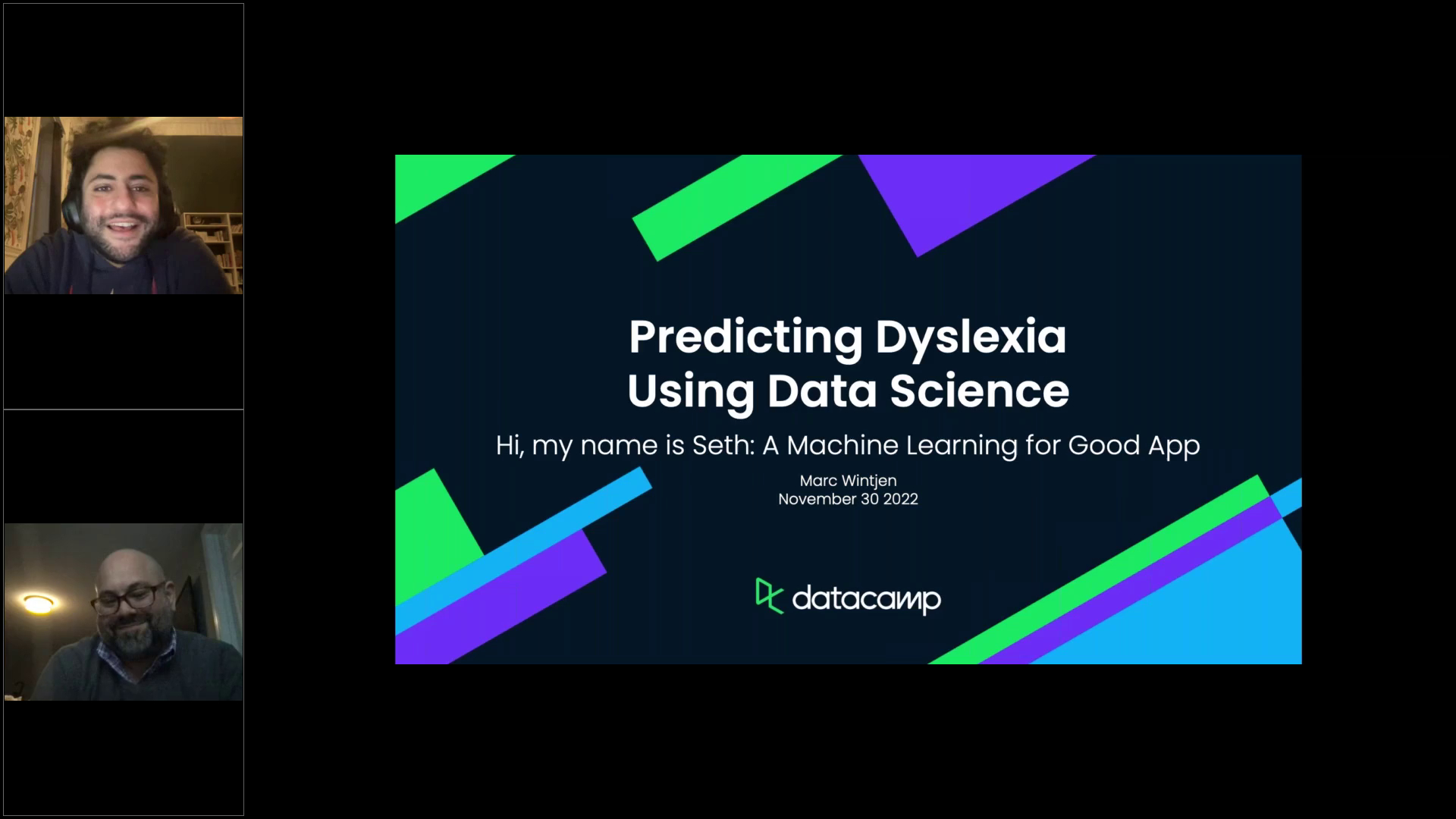Speakers

Marc Wintjen
Risk Analytics Architect at Bloomberg
Training 2 or more people?
Get your team access to the full DataCamp library, with centralized reporting, assignments, projects and morePredicting Dyslexia using Data Science
December 2022
Related
The Definitive Guide to Machine Learning for Business Leaders
Craft a 21st-century data strategy to optimize business outcomes.white paper
Insights from Data Leaders
Distilled insights on data transformation from data science thought leaderswhite paper
Insights from Data Leaders
Distilled insights on data transformation from data science thought leaderswhite paper
2022 Data Trends and Predictions
Read about 9 trends shaping data science in 2022 and beyondwhite paper
2022 Data Trends and Predictions
Read about 9 trends shaping data science in 2022 and beyondwebinar